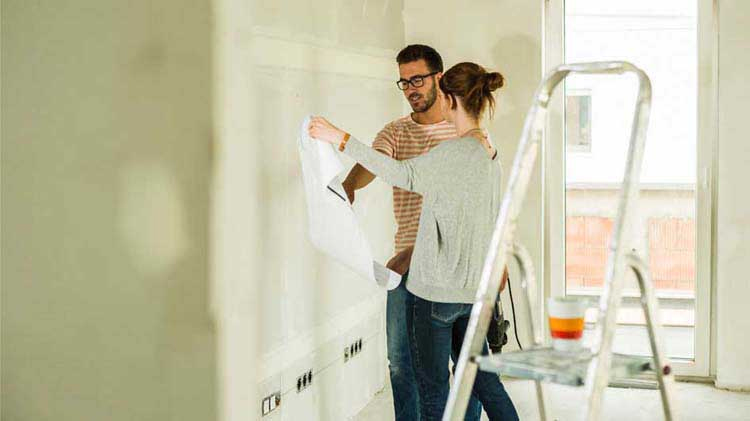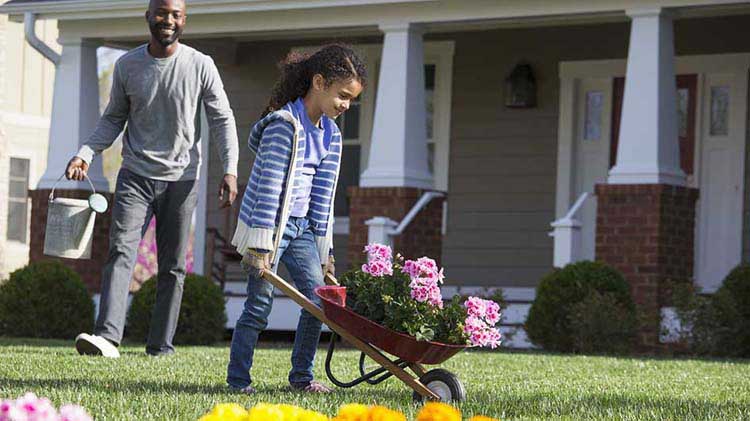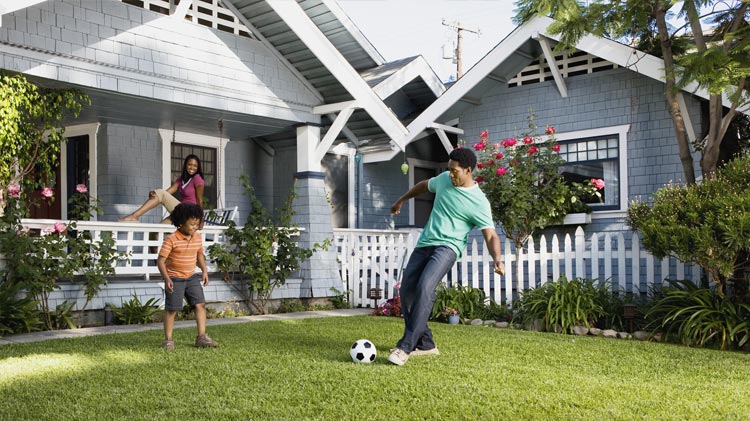What you need to know about replacement cost vs market value
Learn the difference between replacement cost value and market value coverage to make an informed decision when purchasing home insurance.
When you purchase homeowners insurance or renters insurance, you'll make a number of decisions. One of the most important is the amount of homeowners or renters coverage that best meets your needs. Understanding your options will help you make an informed choice that helps safeguard your real estate and your family's financial future.
What is replacement cost?
Replacement cost is the cost necessary to repair or replace your entire home. When you insure your home for its estimated replacement cost, your insurer will reimburse you (subject to your policy limits) for the cost of rebuilding or repairing your home, based on the size and structure of the home that was lost or damaged.
The most appropriate way to estimate the replacement cost of your home is to hire a building contractor or other building reconstruction professional to produce a detailed replacement cost estimate. Or your State Farm® agent can help you by utilizing an estimating tool from Xactware Solutions — to assist you with an estimate. Only the estimated replacement cost of the property's structure and its associated systems, fixtures and finishes will be included in the estimate; land value is included in a home's market value but should not be included in the amount of insurance you buy. Remember though, the ultimate decision on how much to ensure your home for is yours
Get a homeowners insurance quote
Want to protect your home?
Benefits of replacement cost
In the event of a loss, replacement cost coverage gives your family the best chance to return to their home and usual quality of life with minimal financial interruption. For the best protection, consider insuring your home for at least 100% of its estimated replacement cost.
Risks of replacement cost
Replacement costs can change over time, so you should review your homeowners policy annually to make sure its coverage meets your needs. Inform your insurer if you have upgraded or improved your home, because these alterations may increase your home's estimated replacement cost. Also, you'll want to stay informed about changing market conditions in your area. Rising labor, materials and transportation costs can directly affect your home's estimated replacement cost. For maximum protection, consider a policy that includes an inflation clause that automatically adjusts to account for changes in construction costs.
What is market value?
Market value is the amount that a buyer would pay to purchase your home and its land in its current condition. Unlike your home's estimated replacement cost, its market value is influenced by factors beyond the material and labor costs of repairs or reconstruction, such as proximity to good schools, local crime statistics, the availability of similar homes and the local housing market. Also, the land itself will be included in the home's market value, although it will not be covered by the homeowners policy.
Risks of market value
When you insure a typical home for its market value, it may be less than replacement cost value. When this is the case, you can pay less for your insurance, however, you are at risk of having incomplete coverage. For example, imagine that a family buys a home for $175,000 and takes out a homeowner's policy for the same amount. The estimated replacement cost for the home, though, is $225,000. If a fire or other insured event destroys the house, the insurance settlement may be less than the actual replacement cost of the home. The family would either have to make up the difference themselves or build a new, less expensive home.
When you buy a house, getting insurance to protect it is just the beginning. Make sure you reach out to your insurance company and ask any questions you may have to decide the best way to insure it. Once you are all settled in, learn tips about home maintenance and ways to keep your property safe.




